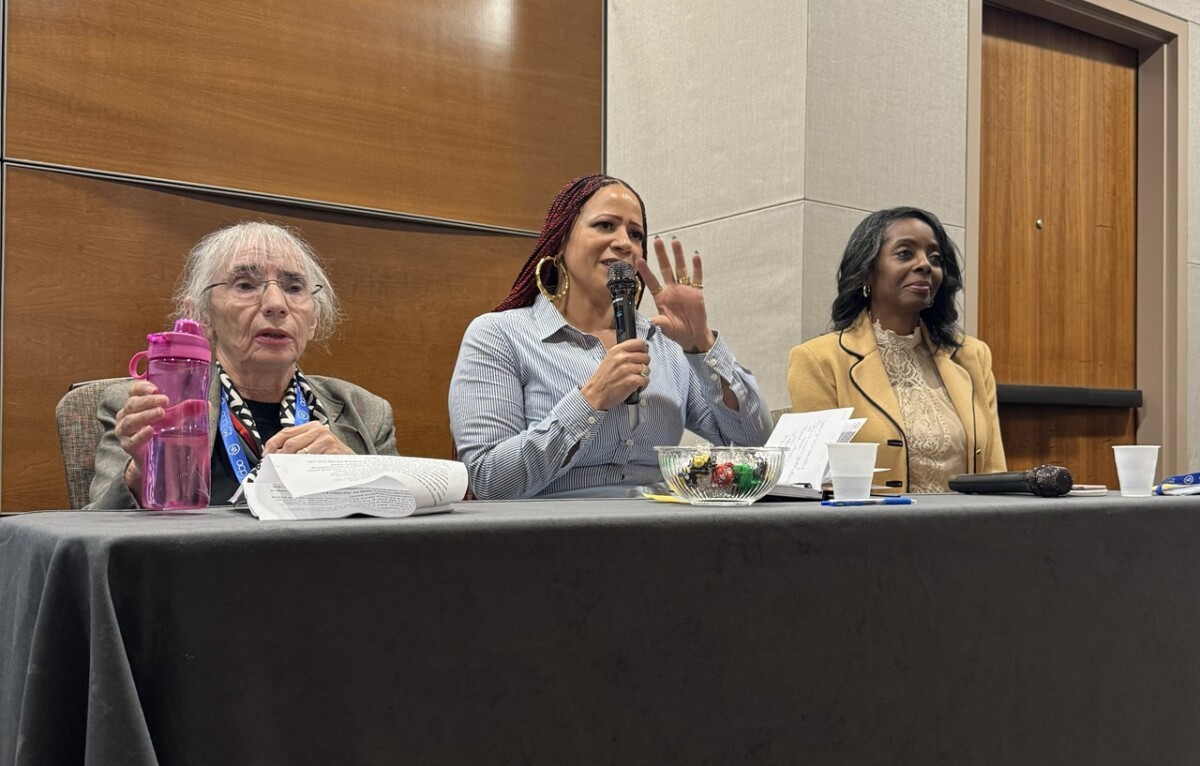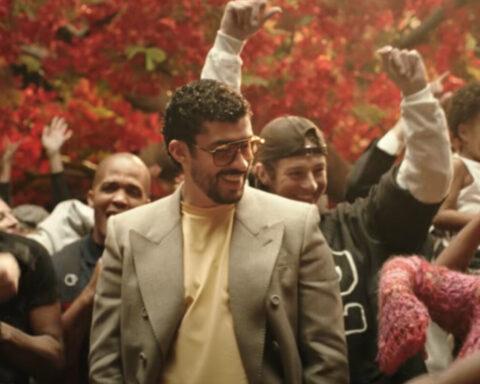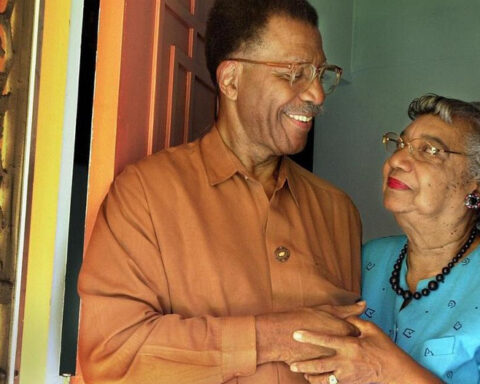By Jeremy Garza
After acknowledging the difficulties facing journalists trying to enter the industry right now, Pulitzer Prize-winning and MacArthur genius grant journalist Nikole Hannah-Jones asked a room full of budding journalists attending MediaFest 25 a simple question.
“What else would you rather be doing at this moment?” Hannah-Jones, the creator of “The 1619 Project,” said in a panel titled “Erasing Black History.”
The United States is more diverse than it has ever been, but Hannah-Jones said she’s noticed newsrooms running away from the reality of the country and focusing on small minorities. NBC fired 7% of its workforce this week, including eliminating dedicated editorial teams for NBC Asian America, NBC BLK, NBC Latino and NBC OUT.
“We’re told that we are in an objective profession, and yet so many of these decisions are clearly not objective,” Hannah-Jones said. “These are subjective decisions, and we certainly would fall victim to the larger political correction that is happening — not just across society and politics, but in newsrooms as well.”
Hannah-Jones, a professor at Howard University and a co-founder of the Ida B. Wells Society for Investigative Reporting, shared the stage with fellow Howard professor and panelist Jennifer Thomas and moderator Celia Wexler, president of the Washington, D.C., chapter of the Society of Professional Journalists (SPJ).
Sometimes journalists are tasked to cover things they may not personally agree with, said Thomas, the first Black executive producer in domestic news at CNN and 9 a.m. producer during the 9/11 terror attacks. Thomas points to the core tenet of the SPJ code of ethics in these moments: Seek the truth, and report it.
“In that fundamental, part of that is to make sure we’re diverse in the way that we tell our stories,” she said. “We have to do the stories to share what’s happening in our community and how these policies are affecting us.”
Policies under the Trump administration, such as the revisionist movement targeting museums or ending what the administration calls racial indoctrination in schools, are undoing the work of Black history scholars.
Hannah-Jones wrote recently for The New York Times Magazine that the United States is in the midst of the most comprehensive attack on civil rights in 60 years. She thinks there is a reason the Trump administration is focusing on targeting how history is taught and displayed.
“Control of history is therefore to control the narrative to be able to justify the actions that are being taken,” said Hannah-Jones, founder of the Center for Journalism & Democracy at Howard.
As Black female journalists, both professors shared their experiences in the industry and offered advice for all young journalists. For general assignment reporters who do not have a specialized beat, Thomas reiterated the importance of the story pitch. She thinks that is where journalists must have the passion, drive and purpose to look for stories that are not being told in the right context of history.
“There are lots of reporters who are still on the payroll, but they’re not getting that airtime because it’s not determined that [they have] the big source,” Thomas said. “So you have to make it your point to make sure that those stories that are important, that you have done your due diligence to research, and that you’re passionate about, that those stories are told.”
Thomas emphasized the importance of committing to the craft of journalism to tell impactful stories. Both speakers told students to get out and report stories with history in mind. Instead of focusing on a student multicultural center closing, Hannah-Jones urged attendees to look into why it opened in the first place.
She suggests asking questions like why the center was necessary and talk to the original students who advocated for the center. Then, she said, go talk to current students about what it means to have that space change or disappear.
“We don’t do activism like we’re holding a sign and marching,” Hannah-Jones said. “But we do activism in revealing the society to itself, holding our mirror to power and helping people to imagine a different future. Go write those stories. There are so many stories I want to see and send them to me. OK?”
Jeremy Garza wrote this article for The SPJ News during MediaFest25.











